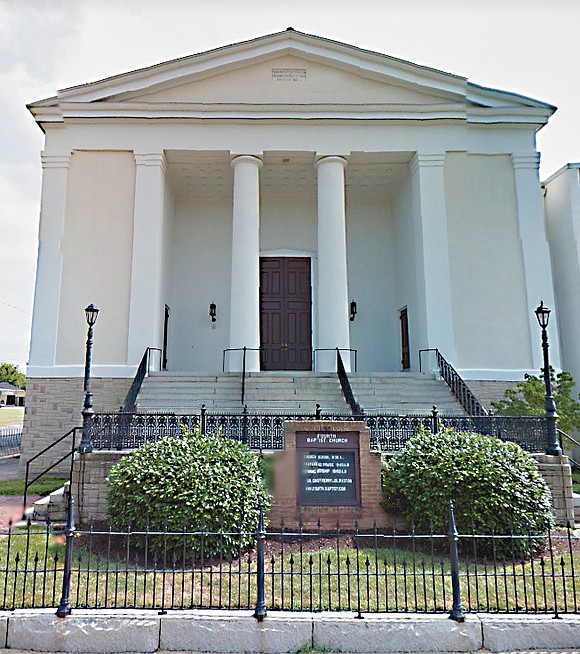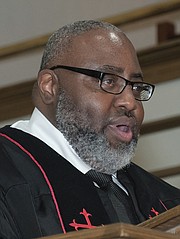Judge suspends incorporation efforts at Fourth Baptist Church
Jeremy M. Lazarus | 4/22/2021, 6 p.m.
A Richmond judge has temporarily blocked historic Fourth Baptist Church from taking any further steps to incorporate and reversed other actions approved during the pandemic.
In a triumph for the congregation’s opponents of incorporation and other changes, Richmond Circuit Court Judge W. Reilly Marchant imposed a temporary injunction on April 15 that, among other things. halted an impending vote on changing the 162-year-old church’s legal structure.
Judge Marchant cited the pandemic in overturning other significant changes made to the church’s operations in the past 13 months since the spread of COVID-19 forced the church to suspend in-person services and move worship and congregational meetings online.
For example, Judge Marchant’s order voided a controversial congregational vote at a special June 2020 meeting that narrowly approved the recommendation of the church’s pastor, Dr. William E. Jackson Sr., to oust the church’s Trustee Board and terminate its Finance Committee.
Under the ruling, the ousted Trustee Board members are reinstated and the Finance Committee once again will manage church income and spending.
Dr. Jackson had sought the ouster to keep paying the church’s small staff. The Finance Committee and trustees wanted to lay off the staff to save money following closure of the sanctuary at 2800 P St.
Judge Marchant’s injunction bars further action until the congregation can again hold in-person meetings open to all members to consider and vote on actions that are not routine business.
He issued the temporary restraining order in a suit that six of the ousted trustees brought in the name of the church.
The legal action represents one of the most contentious events in the history of Fourth Baptist, which attributes its founding to 23 enslaved people in 1859, before the start of the Civil War.
The church last experienced such upheaval in the late 1990s when its pastor and former Richmond mayor, the late Dr. Leonidas B. Young II, pleaded guilty to influence-peddling in his political office and defrauding an elderly church member. Dr. Young was forced out as pastor and took some members with him to form a new church, New Kingdom Christian Ministries.
Judge Marchant, treading carefully to avoid breaching the church-state divide, sided with the plaintiffs’ arguments that since the start of the pandemic, Dr. Jackson and the deacon board have held online congregational meetings that the church’s constitution did not provide for.
The plaintiffs also argued that the meetings were held without proper notice to all church members and without ensuring all members could participate as the constitution requires.
The injunction was issued four days before a scheduled congregational meeting whose agenda, according to Dr. Jackson, was to include a final vote on incorporation and on a proposed new constitution and bylaws. The judge’s order prevents such a vote.
Longtime church member Shelia Fitzgerald called the judge’s decision a bittersweet victory for those, like her, who believe the main justification for incorporating and for changing the church’s structure is to grant the pastor more authority to run operations and to reduce congregational oversight.
“There is no real winner because we still have a divided church,” said Ms. Fitzgerald, who helped organize the shared effort to cover the legal costs of the suit. “I don’t know how we will bring the congregation back together. This is not what the Lord called us to do, to fight among each other. We have a lot of work to do to restore our church.”
Filed in January, the suit was brought by seven people, including six of the trustees who were removed, Roosevelt Walker, Joseph C. Flannigan, Devandas Kendrick, Mastine Braswell, James Hewlett and Linda Hawkins, the reinstated chair of the Finance Committee, and the church’s reinstated treasurer, Linda Reynolds.
Attorney and church member John L. Taylor III initially represented the plaintiffs. To avoid creating a conflict for Mr. Taylor, the plaintiffs hired William F. Seymour IV to argue the case.
Dr. Jackson was a named defendant, along with Gerard A. Dabney, chairman of the Deacon Board, and six of the Deacon Board’s active members. The defendants used church funds to pay for their legal defense after receiving approval at an online congregational meeting.








